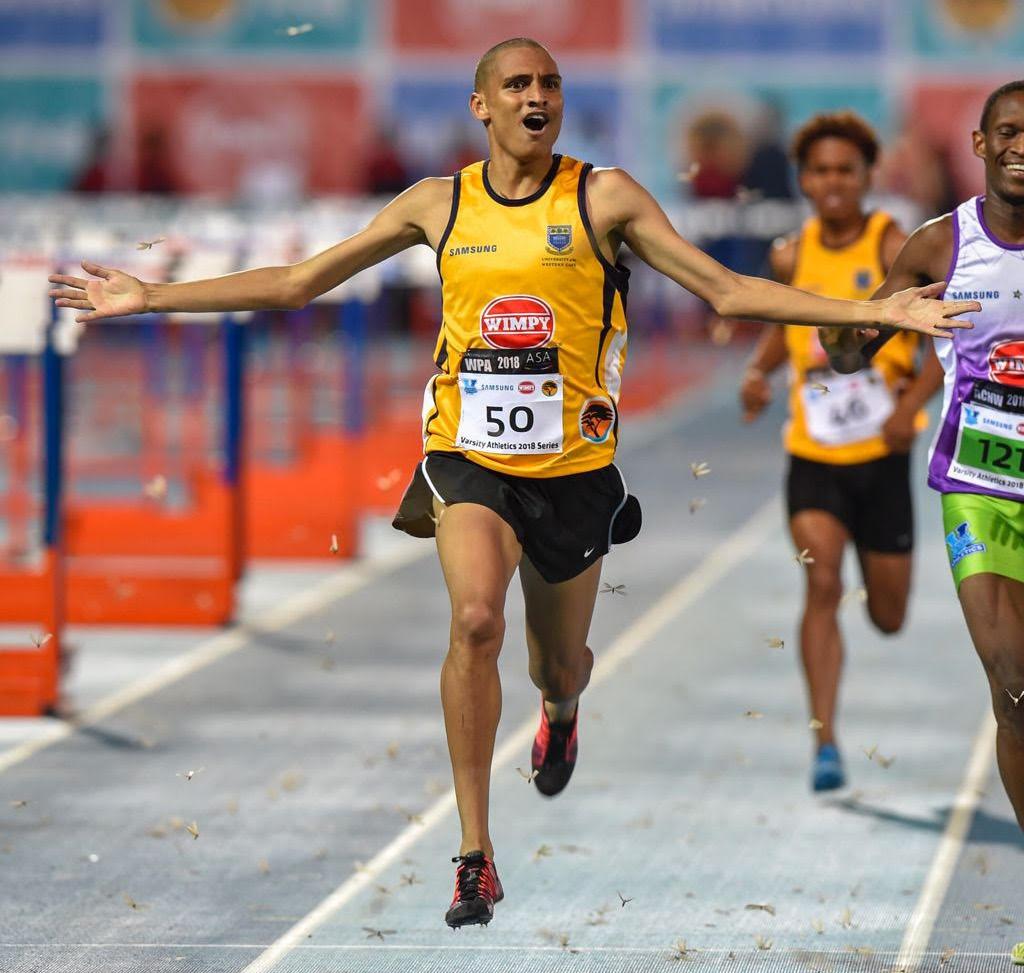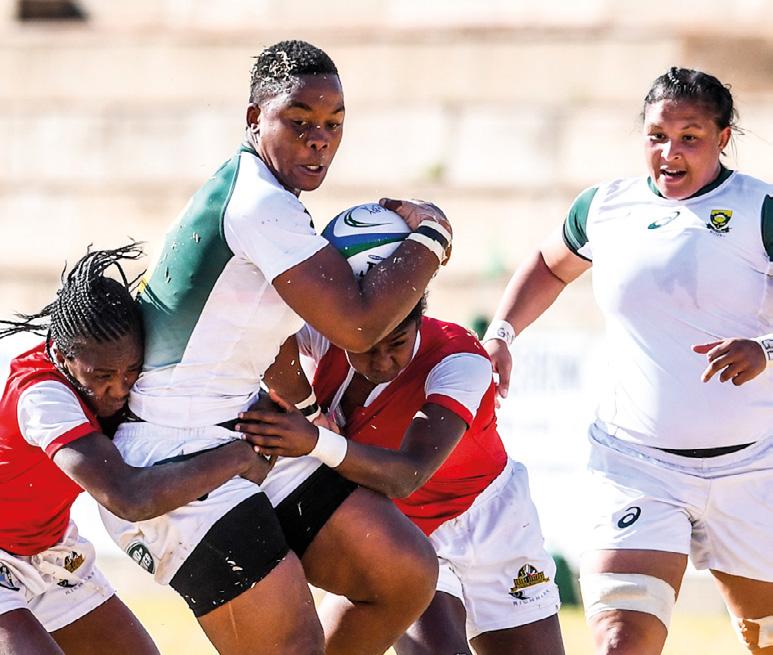
5 minute read
ONE SIZE (DOESN’T) FIT ALL
Athletes across the world, including these UWC alums, have had to find creative ways of staying fit during the pandemic
By Melissa Siegelaar
The COVID-19 pandemic caused sporting events to be cancelled across the world in 2020. But that didn’t stop professional athletes Thembi Kgatlana, Babalwa Latsha and Ashley Blockie Smith from finding creative ways to stay physically and mentally fit.
“When the pandemic hit, I was in Europe,” says Kgatlana, an international football player, a member of South Africa’s national women’s team Banyana Banyana, and one of two South African women ever to be awarded African Women Footballer of the Year by the Confederation of African Football (CAF).
The forward joined Portugal’s SL Benfica club on 27 January 2020 and helped the club beat Braga 3-1 just five days thereafter. The UWC alumnus soon found her feet, scoring three domestic cup goals.
Then, on 13 March, all sport matches were suspended in Portugal due to the spread of the coronavirus.
“We had to start training online,” says Kgatlana.
The training involved daily runs and completing exercises designed to be done in smaller, indoor spaces such as an apartment. Kgatlana also relied on training apps to further enhance her fitness.
“While many people were panicking when we went into lockdown and stopped matches, I told myself, ‘We have no idea when this lockdown will stop, so you just need to keep training and keep yourself mentally and physically fit for when everything returns to normal.’”
Benfica players were also required to restrict their outdoor movements. “It was tough at first because it’s not something I was used to. Having to create space in your home to exercise daily also required some creativity.”
In July, Kgatlana moved to Spanish Primera Division side SD Eibar, where she now trains in-person with her team under strict COVID-19 safety protocols. The team has started to play matches again, without spectators.
“We’ve lived with this virus for a year now, so it’s important to find a way to return to living our lives as normally as we possibly can. I’ve done that by challenging myself mentally to do new things. I take each day as it comes and I’ve accepted that the pandemic is continuously changing how we live.”

Latsha, on the other hand, had a different experience to Kgatlana in Spain, where she experienced the first of two different lockdowns (the other in South Africa).
“I experienced two major lockdowns in two different countries. It felt weird, to say the least,” says the prop, who, in addition to being the first and only African women’s rugby player to go professional with a European team (Eibar Rugby Taldea in Spain), is currently training with the Springbok Women’s team in Stellenbosch, where they had been preparing for the now-postponed Rugby World Cup.
“Never before has humanity or anyone in our generation experienced something of this magnitude. It’s been frustrating at times, but the main thing that worked for me was to focus on the things I could control.” One of which was keeping her body in good physical condition while she was at home, a feat that came with its own challenges.
“I started training at home by lifting furniture – and even my sister! – to build strength,” she says, laughing. “The focus was on making good use of the confined spaces I had to exercise in.”
Latsha admits she found it difficult to deal with match cancellations as she loves being on the sports field. Her family, all of whom are former sports men and women as well, became her emotional rock as they understood the impact that the cancellation of in-person training and games have on athletes. She also drew on the mental resilience she’s built as a sportsperson.
This year, she says, has been much better, especially as she’s been able to train in-person with her Springbok teammates and has also been elected to Rugby Africa’s Committee for Player Welfare and Participation. “The [World Cup] is something I’m looking forward to. It’s massive and quite exciting,” she says, adding that she hopes to use her platform to further contribute to women’s rugby on the continent.
“The best part about being on this committee is that I’ll be working with 10 other African women who are making an impact with rugby in their countries.”
Middle-distance runner Smith has had a more South African experience. He’s been training in his driveway and taking jogs in his neighbourhood during the various lockdown levels. Smith, the 2019 UWC Sportsman of the Year, used to train at the UWC athletics track before the pandemic hit. “Not much has changed in my training routine except that I now train at home,” he says.
While COVID-19 brought a wave of anxiety and uncertainty about his running schedule, he has remained highly motivated. “The pandemic forced me to take a new perspective, where running is not my only source of happiness. During the lockdown, my spiritual life has gotten stronger and I’ve found a lot of happiness from biblical scriptures. Before the pandemic, running was my only source of happiness, but now I’m trusting God with my plans.”
Smith’s athletic talent can only be matched by his positive attitude and willingness to find opportunities amid challenges – of which he’s found many during this time. With higher education institutions such as UWC having to adopt online learning to ensure physical distancing and to stop the spread of the virus on campus, it has benefited student-athletes like him indirectly. He says the balance between his academic coursework and running schedule has improved immensely.
Impressively, and despite the setbacks brought on by the coronavirus, Smith was selected as one of the official elite running ambassadors for the American sport equipment brand Under Armour in 2020, with his first advertisement posted to social media platform Facebook earlier this year.
Adds Smith: “I don’t know what 2021 has in store for me yet, but I know this will be my year of breakthrough.”











